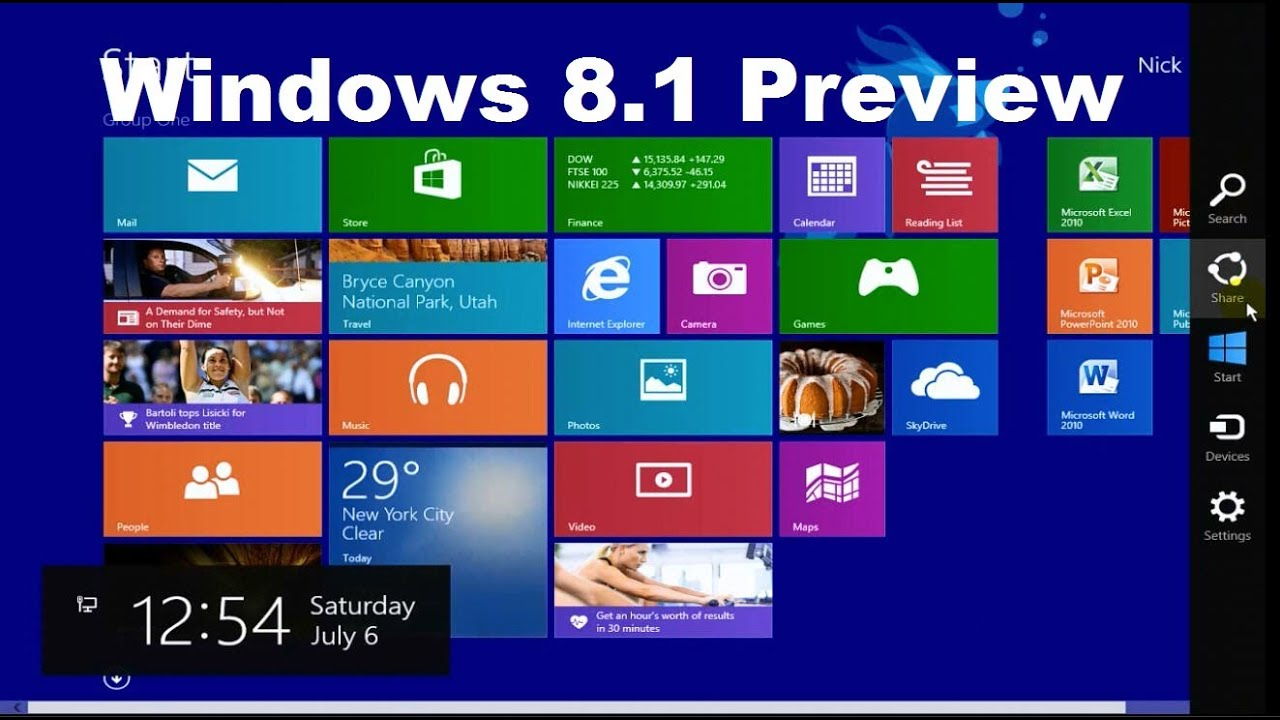Joaquín Almunia, the newly appointed European Commissioner for Competition, takes the helm at a crucial juncture for the EU’s regulatory landscape. With his extensive background in European policy, Almunia’s perspective on the dynamic interplay between major corporations and the global economy is eagerly awaited. As the European Commission continues to shape its approach to antitrust issues, particularly in relation to giants like Microsoft and Google, the implications for the tech industry and competition laws are considerable. Many analysts are speculating on the potential impacts of his decisions, especially considering the backdrop of ongoing EU antitrust news and high-profile cases like the Microsoft Competition case. The world watches closely as Almunia navigates these waters, with key implications not just for Europe, but for the global economy as a whole.
As the EU embarks on a new chapter in competition regulation with Joaquín Almunia at the forefront, discussions surrounding fair competition practices are gaining momentum. With influences from major players like Intel and Google, the evolving landscape poses significant questions about market fairness and corporate accountability. The importance of these discussions cannot be overstated, especially in light of recent EU antitrust developments that could reshape how companies operate within the European framework. Observers are keenly interested in Almunia’s stance on these matters and how they will inform future legislation and enforcement actions. The ongoing dialogue about competition regulation will undoubtedly influence both the European market and the strategies of multinational companies moving forward.
Joaquín Almunia and the Future of EU Antitrust Regulations
As Joaquín Almunia steps into his role as the new European Commissioner for Competition, the landscape of EU antitrust regulations is set to undergo significant scrutiny. His approach could redefine how American tech giants such as Microsoft, Intel, and Google navigate the intricacies of the European market. Clarity surrounding Almunia’s stance is critical, especially as Europe tightens its market regulations in response to global economic trends. The impact of his decisions will not only affect these corporations but could also reshape competitive practices across various industries within the EU.
Monitoring changes in antitrust enforcement during Almunia’s tenure will be essential for companies operating within the EU. With his appointment, stakeholders are keenly awaiting developments regarding ongoing and future cases, particularly the Microsoft Competition case, which has seen its share of ups and downs. As European authorities confront the dual challenge of fostering innovation while curbing monopolistic behavior, Almunia’s decisions will be pivotal in steering the EU’s competitive landscape.
The Impact of Antitrust Decisions on the Global Economy
Antitrust decisions made by the European Commission resonate far beyond the continent, influencing the global economy significantly. The competitive dynamics faced by companies like Intel and Google can shift based on regulatory actions taken in Europe. These decisions have a ripple effect, impacting international trade relationships and dictating how technology firms innovate and market their products worldwide. Understanding the implications of EU antitrust actions becomes imperative for global businesses aiming to maintain a competitive edge in a rapidly evolving marketplace.
As we observe the actions of Joaquín Almunia, it’s vital to consider how these antitrust policies might affect not just European consumers, but also global consumers and businesses. The scrutiny faced by multinational corporations can instigate changes in corporate behaviors, pushing them to embrace fair competition and foster transparency. In this regard, the outcomes of antitrust investigations can help level the playing field, thereby encouraging a more vibrant and equitable global economy.
The Microsoft Competition case exemplifies how European antitrust proceedings are not isolated incidents but are part of a larger dialogue surrounding corporate governance worldwide. The repercussions of these cases extend into international markets, demonstrating the EU’s influential role in promoting fair competition on a global scale.
The Microsoft Competition Case: Key Developments and Implications
The Microsoft Competition case, which has long been a cornerstone of EU antitrust investigations, remains a pivotal issue as Joaquín Almunia assumes office. Although the previous charges might have been settled, the ongoing scrutiny underlines the Commission’s commitment to ensuring a competitive market landscape. New developments in this longstanding case could signal a shift in how technology companies approach compliance with EU regulations, especially with the impending rollout of the ‘Choice Screen’ for Windows users in Europe.
Almunia’s response to the Microsoft case will not only affect the company’s market strategies but could also influence future engagements with other entities in the tech sector. If the European Commissioner leans toward stricter enforcement, we could see a precedent-setting impact on how corporations conduct their business practices, optimize their software offerings, and interact with consumers across Europe. Keeping an eye on the implications of this case will be crucial for industry stakeholders and competitors alike.
Intel and Google in the Context of EU Competition Law
As market leaders in their respective fields, Intel and Google are closely watched players under EU competition law. Joaquín Almunia’s approach will be critical in shaping the regulatory framework that governs these tech giants’ operations. The scrutiny they face from the European Commission not only pertains to compliance and market share but also impacts innovation and consumer choice within the EU. Intel’s practices around processor sales and Google’s advertising strategies could be significant focal points for antitrust considerations in the coming months.
The investigation into Google, specifically regarding its search engine practices and advertising models, highlights the complexities of competition law in the digital age. Almunia’s potential decisions regarding these companies will set the tone for how innovation is treated in regulatory contexts and will influence how tech corporations structure their operations, collaborate, and engage with consumers. The outcomes of such investigations may create a new paradigm for competition, not just within Europe but globally.
Navigating EU Antitrust News: What Lies Ahead?
Staying updated with EU antitrust news is essential for businesses operating within the tech sector and beyond. As Joaquín Almunia’s policies and priorities unfold, the landscape will continue to evolve regarding competition laws and the corporate compliance environment. Monitoring developments regarding major players like Microsoft, Intel, and Google becomes crucial for anticipating possible regulatory shifts that could affect their market strategies.
The ongoing discourse surrounding competition and antitrust laws will also serve as a litmus test for how well the EU balances regulatory actions with fostering an innovative economic environment. Stakeholders should pay attention to Almunia’s rhetoric and actions as they may provide vital insights into the future economic landscape across Europe and potentially influence global practices. Keeping abreast of these developments will allow companies to better strategize and align their operations with regulatory expectations.
The Role of European Commission in Shaping Market Dynamics
The role of the European Commission, under the stewardship of Joaquín Almunia, is critical in shaping the market dynamics within the EU. The Commission’s initiatives have far-reaching impacts on corporations, particularly those operating on a multinational scale. Their regulatory stance against monopolistic practices encourages healthy competition, ensures fair pricing for consumers, and ultimately drives innovation in various sectors.
Understanding the Commission’s strategic objectives will provide valuable context for predicting future regulatory changes that could affect companies like Microsoft, Intel, and Google. As market landscapes evolve, the influence of the EU’s competition policies will become increasingly evident, making it important for businesses to align their objectives with these regulatory frameworks to enhance their market standing.
The Intersection of Competition Policy and Consumer Choice
The intersection of competition policy and consumer choice is increasingly underlined as the EU moves forward with various antitrust investigations. Joaquín Almunia’s policies will play a crucial role in ensuring that consumers are presented with a wide array of choices, particularly in the tech sector. The implementation of the ‘Choice Screen,’ for instance, highlights how regulatory efforts can directly impact consumer experiences by promoting diverse options.
As competition policies evolve, stakeholders must assess how these regulations can cultivate an environment truly favorable to consumers. The continuous engagement of the European Commission in scrutinizing major corporations sends a clear message regarding the necessity of fair competition and maintaining high standards for consumer rights. This encourages companies to innovate and diversify their offerings, ultimately working to enhance the overall consumer experience.
Future Challenges for Joaquín Almunia and the European Commission
As Joaquín Almunia steps into his role, he faces the immense challenge of navigating the complexities of EU competition policy amid a rapidly changing global landscape. The ongoing scrutiny of tech giants, including Microsoft and Google, presents both an opportunity and a dilemma for the new Commissioner. Balancing the need for stringent antitrust enforcement while fostering an innovative environment will be critical in maintaining competitiveness in the digital age.
Furthermore, Almunia must confront the realities of public perception and political pressure surrounding large corporations. With varying opinions regarding the impact of these companies on the global economy, his ability to enact well-considered laws while addressing the concerns of legislators and consumers alike will shape the efficacy of his tenure as the European Commissioner for Competition.
Understanding LSI in the Context of EU Antitrust
Latent Semantic Indexing (LSI) is an essential tool for understanding the interconnectedness of concepts within EU antitrust discussions. For instance, terms like ‘EU antitrust news’ and ‘Microsoft Competition case’ illustrate the supporting narrative that encompasses both current events and historical context within regulatory frameworks. Using LSI can help stakeholders comprehend the broader picture surrounding competition policy and its implications for both consumers and corporations.
By leveraging LSI, companies can better align their strategies with regulatory objectives, ensuring compliance while maximizing market potential. This approach can illuminate patterns and trends in consumer behavior and regulatory expectations, thereby equipping businesses with the insights necessary to thrive in a complex environment shaped by the actions of policymakers like Joaquín Almunia.
Frequently Asked Questions
Who is Joaquín Almunia and what role does he play in EU competition policy?
Joaquín Almunia is the European Commissioner for Competition, responsible for enforcing EU competition rules and overseeing antitrust cases within Europe. His role is crucial in shaping the landscape of competition law, particularly regarding significant companies like Microsoft, Intel, and Google.
What are the implications of Joaquín Almunia’s stance on the global economy for American companies?
Joaquín Almunia’s views on the global economy could significantly impact American companies operating in Europe. As the EU’s antitrust authority, he holds the power to influence regulatory approaches that affect how firms like Intel and Google compete within the European market.
How does Joaquín Almunia’s leadership affect the Microsoft competition case?
Under Joaquín Almunia’s leadership, the European Commission continues to monitor the Microsoft competition case, assessing compliance and potential further actions. Though some active charges may be closed, ongoing scrutiny emphasizes the importance of fair competition in the software sector.
What is the current status of EU antitrust news regarding Joaquín Almunia?
EU antitrust news surrounding Joaquín Almunia involves ongoing investigations and public interest in how his policies will influence competition law, particularly concerning major tech players such as Microsoft, Intel, and Google.
What challenges does Joaquín Almunia face regarding Intel and Google competition issues?
Joaquín Almunia faces challenges in addressing competition issues involving major corporations like Intel and Google. He must balance regulatory scrutiny while promoting innovation and ensuring a level playing field in the global economy.
What might be the next steps for Europe with Joaquín Almunia in charge of competition?
With Joaquín Almunia at the helm, Europe may see heightened scrutiny of tech giants and potential new regulations aimed at ensuring fair competition, particularly as they adapt to ongoing challenges in the global economy.
| Key Point | Details |
|---|---|
| Appointment of Joaquín Almunia | In January, Joaquín Almunia takes office as the European Commissioner for Competition. |
| Unclear Stance on Companies | Almunia’s views on individual companies, especially American firms like Intel, Microsoft, and Google, remain uncertain. |
| European Commission Investigations | The investigation into Microsoft is still open, despite the conclusion of active charges against them. |
| Public Reaction | Many European news sources express uncertainty about Almunia’s future decisions regarding competition policy. |
| Upcoming Developments | With Microsoft introducing a ‘Choice Screen’ for Windows users in Europe, speculation on Almunia’s responses is rife. |
Summary
Joaquín Almunia’s tenure as European Commissioner for Competition marks a significant period where clarity and direction are urgently needed. While his appointment has promised a fresh perspective, his initial lack of clear stance on American firms indicates a cautious approach. The ongoing investigations into Microsoft reflect the complexities Almunia faces as he navigates the intricate landscape of European competition. Stakeholders will be keenly watching how his policies evolve in response to emerging challenges within the market.



